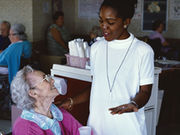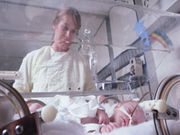Tag: Medical Errors
Injured Patients Want More Info on Safety Improvement Efforts
Eighteen of 30 patients and family members reported the CRP experience to be positive overall
21 Percent of Americans Report Experiencing a Medical Error
Survey results show patients and families feel some responsibility for patient safety
Communication Program Doesn’t Raise Hospital Liability Costs
The few program events that met eligibility criteria for compensation were not costly to resolve
Nurse-, System-Related Factors Analyzed in Wrong-Patient Events
In 77 percent of wrong-patient incident reports, the process of identifying the patients was not described
Errors in Opioid Prescribing for Adult Outpatients Common
Errors in 89 percent of handwritten prescriptions, 0 percent of EHR-computer generated prescriptions
Rate of Non-Health Care Facility Medication Errors on the Rise
Poison control centers get one call every 21 seconds about a potentially serious mix-up
Patient Involvement Can Cut Errors in X-Ray Imaging
Rate reduction of about 91 percent in error rate in left-to-right errors after intervention
Causes of Serious Adverse Events in Nursing Homes Identified
Most serious adverse events caused by medication errors, falls, delayed or inappropriate intervention
Social Psychology May Help With Physician Error Disclosure
Deliberate practice, together with lessons from social psychology, can implement change in error disclosure
More Wrong-Patient Orders in NICU Versus Non-NICU Ped Units
Reduction in frequency of errors with ID reentry intervention and combined ID, distinct naming














